☆ PuniPuni Youtube ☆
Japanese Phrase Lesson 9: Fun and interesting! 楽しい!おもしろい! – Review Notes
Today we learned the Japanese words for “fun” (tanoshii) and “funny/interesting” (omoshiroi). In this review, we will learn the negative and past tense of these words, as well as the word for “boring.”
………………………………………………………………………………..
Number 1:
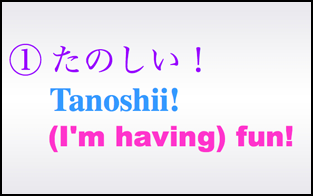
★ Tanoshii means “fun.”
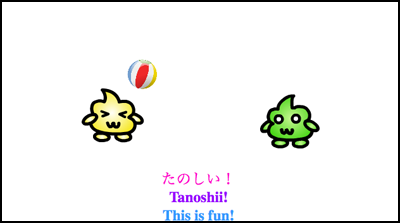
★ When used as an exclamation, it means “this is fun” or “I’m having fun!”
★ If you want to say that something is not fun, you can say “tanoshikunai.” Add “desu” to the end of the sentence to increase the politeness level.
★ If you want to say something was fun, you can say “tanoshikatta.”
★ If you want to say something was not fun, you can say “tanoshikunakatta.”
………………………………………………………………………………..
Example 1:
日本語を勉強するのは楽しい!
Nihongo o benkyō suru no wa tanoshii!
Studying Japanese is fun!
………………………………………………………………………………..
Example 2:
仕事は楽しくない。
Shigoto wa tanoshikunai.
Work is not fun.
………………………………………………………………………………..
Example 3:
パーティーは楽しかった。
Pātī wa tanoshikatta.
The party was fun.
………………………………………………………………………………..
Example 4:
パーティーはあまり楽しくなかった。
Pātī wa amari tanoshikunakatta.
The party was not very fun.
………………………………………………………………………………..
Number 2:
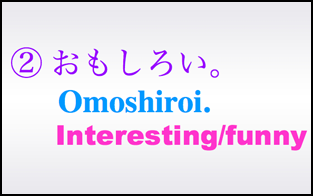
★ Omoshiroi means “interesting” or “funny.”
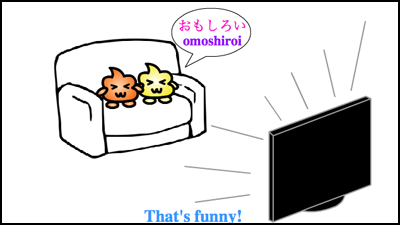
★ If you want to say something is not interesting or funny, you can say “omoshirokunai.”
★ If something is not interesting or fun, you can also use the word for “boring” – “tsumaranai.”
………………………………………………………………………………..
Example 1:
この映画は面白い。
Kono eiga wa omoshiroi.
This movie is interesting/funny.
………………………………………………………………………………..
Example 2:
この映画は面白くない。
Kono eiga wa omoshirokunai.
This movie is not interesting.
………………………………………………………………………………..
Example 3:
この映画はつまらない。
Kono eiga wa tsumaranai.
This movie is boring.
………………………………………………………………………………..
Past tense forms:
omoshirokatta – was funny/interesting
omoshirokunakatta – was not funny/interesting
tsumaranakatta – was boring
………………………………………………………………………………..
Conclusion:
Now you know how to say interesting – omoshiroi, and fun – tanoshii. We also learned the negative and past tense forms. You can use these words by themselves as exclamations, or in longer sentences as adjectives! To make the sentence more formal, just add “desu.”
………………………………………………………………………………..
OMOSHIROI MANGA!
………………………………………………………………………………..
Do you want a Japanese tutor?
Take Japanese Skype Lessons with Professional Japanese Teachers on kakehashijapan.com!
………………………………………………………………………………..
Do you want to talk with Japanese teacher now?
Take free trial Japanese lesson here: https://kakehashijapan.com/

Do you want to study JLPT?
If you are interested in JLPT N5ーN3 preparation course (community), Click here!
………………………………………………………………………………..





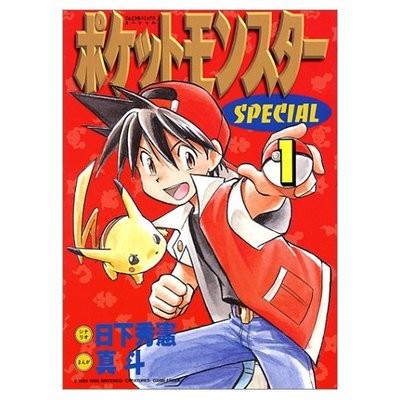

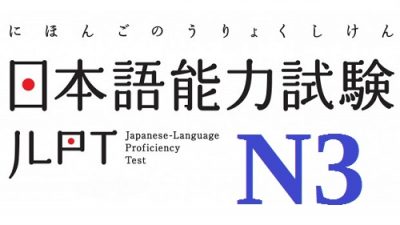



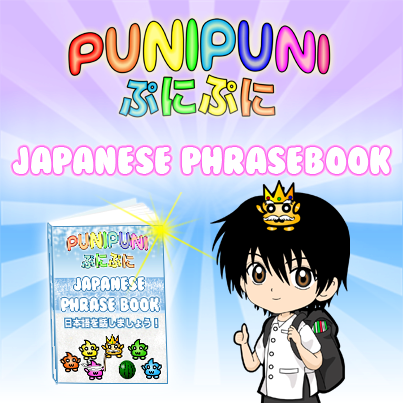

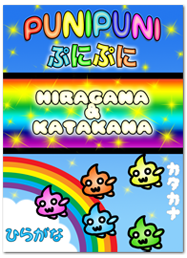
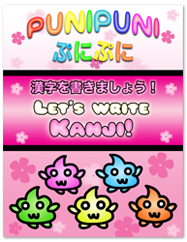
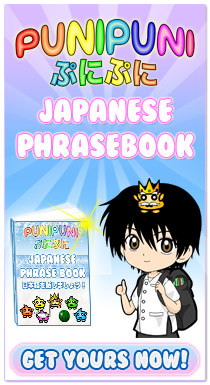

7 comments
Hi. Love the site! In the phrase “日本語を勉強するのは楽しい!”‘ what is the purpose of the の? I can’t recall seeing it used like that before. Thank you!
Comment by Alan on 07/24/2013 at 10:46 amThe particle の is used in this case to nominalize the verb. Nominalization it is the process of modifying a verb so that it functions as a noun. You will use this if you want to say that some kind of an action is fun, boring, interesting, or any other kind of adjective that you want. (◕ω<)☆
Comment by PuniPuni on 07/27/2013 at 10:29 pmThank you very much. I’ll look out for that use in future.
Comment by Alan on 08/09/2013 at 5:55 pmPuni sensei, I recognize the kanji 楽 from “tanoshii” in several animes, and I’d like to know what お楽しみに means. Does it have something to do with “funny” literally?
Comment by Klinger on 02/16/2014 at 9:16 am楽しい (tanoshii) as an adjective means “fun” but the expression お楽しみに (otanoshimi ni) means “look forward to (it).” So for example, at the end of an episode, sometimes they might say about next week’s episode to “look forward to it” so that you will watch again. This expression comes from the phrase 楽しみにする (tanoshimi ni suru) which means “to look forward to” something. So you can say 楽しみにしています。(tanoshimi ni shiteimasu) “I am looking forward to it.” Or, 楽しみにしてください。(tanoshimi ni shite kudasai) which means “Please look forward to it.” (◕ω<)♪
Comment by PuniPuni on 02/19/2014 at 12:55 amPuni-sensei, how do you use 楽しい in question form, as in “are you having fun?”
Comment by Yuu on 10/19/2014 at 7:37 pmYou can say 楽しいですか? (literally, “Is it fun?”) but if you want to ask if someone is “having fun” you should maybe say 楽しんでいますか?(tanoshindeimasu ka?)
Comment by PuniPuni on 10/22/2014 at 7:26 amThis comes from the verb 楽しむ (tanoshimu – “to have fun”), not the adjective 楽しい (tanoshii – “fun”)